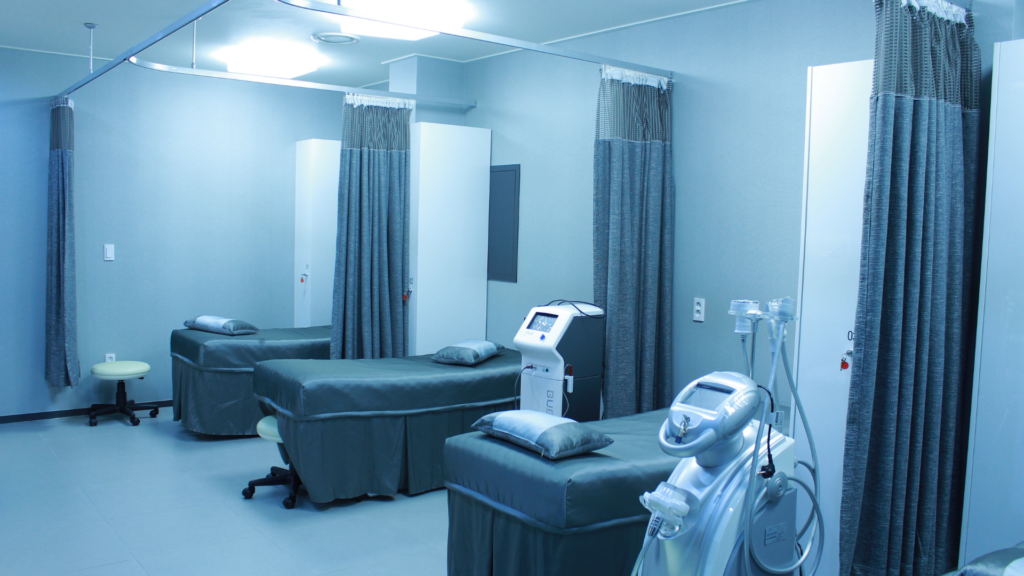
The role of Artificial Intelligence in healthcare is crucial in improving patient outcomes and transforming healthcare systems.
Artificial intelligence (AI) is the ability of machines to mimic human intelligence and reasoning. It involves advanced algorithms, statistical models, and computer-based systems to perform tasks that require human-like intelligence.
AI can transform healthcare by automating routine tasks, analyzing vast amounts of medical data, and improving patient outcomes. AI can also reduce costs, improve efficiency, and increase access to care, particularly in remote or underserved areas.
AI is a crucial tool for modern healthcare systems, revolutionizing every aspect of healthcare, from research and development to clinical practice and administration. Its potential to personalize treatment plans and make accurate diagnoses makes AI a game-changer in the healthcare industry.
AI Applications in Healthcare
The role of Artificial Intelligence in healthcare has an impact on the following applications.
Diagnostics
AI can transform diagnostics by helping healthcare professionals make more accurate and timely diagnoses. AI-powered diagnostic tools can analyze vast amounts of medical data, such as medical images and electronic health records, to detect patterns and identify potential health issues that may not be visible to the human eye. That can help to speed up the diagnostic process, reduce errors, and improve patient outcomes. Radiology and pathology are already using AI-powered diagnostic tools. We expect AI-powered diagnostic tools to become increasingly prevalent in other areas of healthcare in the coming years.
Personalized Treatment
AI can help to personalize treatment plans for individual patients based on their unique medical history, genetic makeup, lifestyle factors, and other variables. By analyzing large amounts of medical data, AI algorithms can identify patterns and predict which treatments are most likely effective for a particular patient. That can help to improve treatment outcomes, reduce the risk of adverse effects, and minimize healthcare costs. AI-powered personalized treatment is beneficial in fields such as oncology, where treatment decisions can significantly impact patient outcomes.
Drug Discovery
AI has the potential to revolutionize drug discovery by helping to identify potential new drug candidates more quickly and accurately. AI algorithms can analyze vast amounts of medical data to identify patterns and predict which molecules will most likely have a therapeutic effect.
That can speed up the drug discovery process, reduce costs, and improve the success rate of clinical trials. Pharmaceutical companies and research organizations are already using AI-powered drug discovery. We expect new AI technologies to become increasingly important in the coming years.
Predictive Analytics
AI can analyze large amounts of medical data to make predictions about patient outcomes and identify individuals at high risk of developing certain health conditions. That is known as predictive analytics. It can improve patient outcomes by enabling healthcare professionals to intervene early and prevent or manage health issues before they become more serious.
Predictive analytics can also optimize healthcare resource allocation and improve healthcare system efficiency, leading to better patient care and reduced costs.
Robot-assisted Surgery
AI can enhance robot-assisted surgery by providing surgeons with more accurate and detailed information about a patient’s anatomy and assisting them during surgical procedures.
AI algorithms can analyze medical images in real-time to guide surgeons on where to make incisions, how deep to go, and which areas to avoid. That can help reduce the risk of complications, improve surgical precision, and speed up patient recovery times.
Robot-assisted surgery with the help of AI is already in use in several fields, including neurosurgery and orthopedics. Experts anticipate that it will become more widespread in the future.

Benefits of AI in Healthcare
AI offers several benefits in healthcare, including improved accuracy, time and cost savings, and enhanced patient outcomes. AI algorithms can analyze vast amounts of medical data with greater accuracy and speed than humans, leading to more accurate diagnoses and personalized treatment plans. AI can also automate routine tasks, such as patient inquiries and appointments, reducing healthcare costs and improving efficiency. AI-powered healthcare tools can enhance patient engagement and education, leading to better patient outcomes and improved quality of life.
Ultimately, the use of AI in healthcare can revolutionize healthcare delivery, providing patients with more effective and efficient care.
Challenges and Risks
While AI has several benefits in healthcare, it also poses challenges and risks. Ethical and legal concerns related to privacy, transparency, bias, and accountability need to be addressed to ensure that AI is used responsibly and ethically in healthcare. The generation of large amounts of sensitive patient data by AI raises concerns about data privacy and security. Technical limitations related to the accuracy, interpretability, and scalability of AI algorithms also need to be addressed. Ensuring that these challenges and risks are mitigated is essential to building trust in AI-powered healthcare systems and protecting patient rights.
Pros
- Improved accuracy in diagnoses and treatment plans
- Personalized treatment plans based on individual patient data
- Faster and more efficient diagnoses and treatment
- Reduced healthcare costs and improved efficiency
- Increased access to healthcare in remote or underserved areas
- Enhanced patient outcomes and quality of life
- Improved drug discovery and development
Cons
- Ethical and legal concerns
- Data privacy and security risks
- Risks for job loss and displacement of healthcare professionals
- Dependence on technology, which may fail or be subject to cyber attacks
Conclusion
In conclusion, The Role of Artificial Intelligence in Healthcare has the potential to revolutionize the industry by improving accuracy, personalizing care, reducing costs, and enhancing patient outcomes.
Despite the challenges and risks associated with AI in healthcare, responsible and ethical use can help to maximize its benefits while minimizing potential harm. The future of AI in healthcare is promising, with new technologies and applications emerging. The increasing adoption of AI-powered diagnostic tools, personalized treatment plans, and drug discovery processes, along with advances in robotics and AI, will enable more complex and efficient healthcare delivery. Ultimately, the continued evolution of AI technology will be critical to improving patient outcomes and transforming healthcare delivery for the better.
Frequently Asked Questions
In healthcare, AI can analyze large amounts of medical data, make predictions, and identify patterns that are difficult for humans to detect.
Examples of AI in healthcare include diagnostic tools that can analyze medical images, personalized treatment plans based on individual patient data, drug discovery processes, predictive analytics, and robot-assisted surgery.
AI can improve healthcare outcomes by improving the accuracy of diagnoses and treatment plans, personalizing care based on individual patient data, and enhancing patient outcomes and quality of life. AI can also help to reduce healthcare costs and improve efficiency, ultimately leading to better patient care and products.
The future of the role of Artificial intelligence in healthcare is promising as new technologies and applications continue to emerge. We expect to see more widespread adoption of AI-powered diagnostic tools, personalized treatment plans, and drug discovery processes in the coming years. Experts anticipate that advances in robotics and AI will enable more complex robot-assisted surgeries and remote patient monitoring.
